- Global Komaba
- English
- Outbound from Komaba
- Study Abroad Programs
- Global Praxis | Short-term
- Reports
- Course participant reports 2018
Course participant reports 2018
S Semester
Finland
- Promoting learning - The Finnish way
-
This global praxis gave me a lot of knowledge and made me rethink my learning up until now. At first, I imaged that Finnish education was good, but I didn’t know why. After this program, I have learned that Finnish education is not perfect, but that the
Finnish people are trying their best to improve education. We don’t have to imitate everything in their system, but still I noticed many things we can learn from Finland.
I think the most important thing in the Finnish education system is the focus on the aim of the education. They are teaching for a person’s entire lifetime. English education is one example. Since Finnish is not spoken in other countries, Finnish people understand that they should learn English to communicate with people from other countries. Therefore, they have a practical reason to study English. The aim of education is clear in other fields as well. During the global praxis, our professor repeatedly said that the client of education, that is, the student, is the future, and that making learning meaningful to students is important. Since we don’t know what information will be needed in the future, what we need is the skill to find, evaluate, and utilize information. Therefore, in Finland they don’t have standardized tests which are for just testing how children memorize contents in their class, and they don’t teach only facts and information. Instead, they teach skills children can use, and the significance of improving those skills.
(NSⅡ)
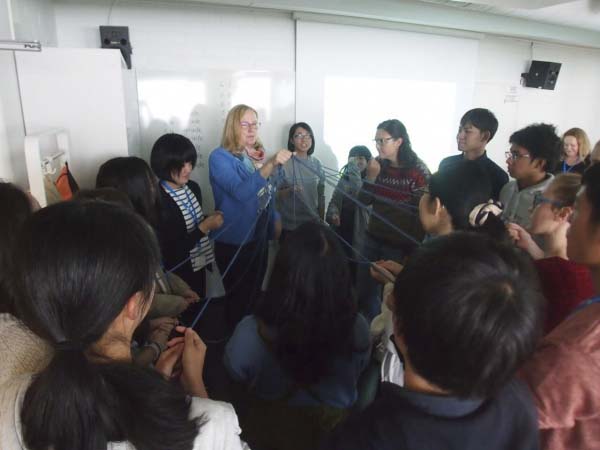
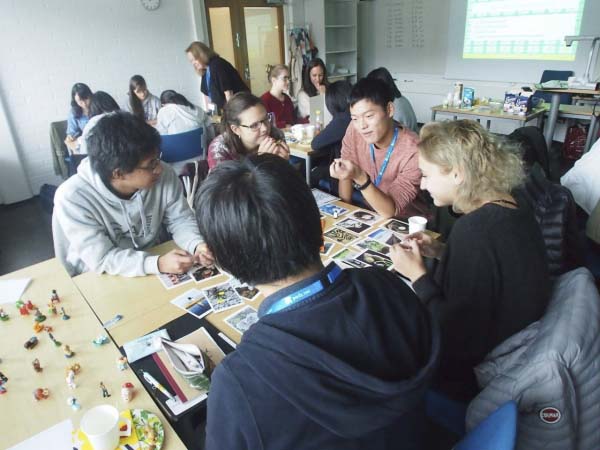
Tokyo & Yamanashi
- Explore Japan with Finnish and Hungarian students
-
This course has definitely improved my motivation for academic study; for example, I learned new things about how to slowly find a question and try to solve it, and about being careful with anonymity in collecting research data. In addition, the course
taught me a lot about group work. It was stimulating and interesting, and I was never bored.
The most important thing for me is to challenge how you use limited time to complete satisfying work. In the following, I will write some points I learned from experiencing this course.
1) You need to actively express your opinion. You might not be able to convince others but you need to at least try. Every idea is worthy of discussion. Even if you end up with just rejecting the idea, understanding the process of why your idea was rejected is good practice.
2) You need to schedule your time well. Especially when you have appointment with people, you need to make sure all your group members are able to attend and that your preparation is thorough enough.
3) You need to be patient in regards to your position. You should be confident, and at the same time, flexible. The more you participate in the group, the more confident you will feel.
Beside the work, I really enjoyed the time we spent together. This was the most fruitful and meaningful experience I have had at the University of Tokyo.
(HS III)
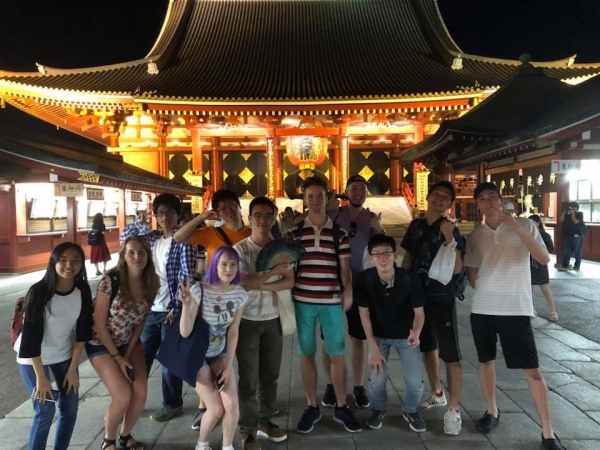
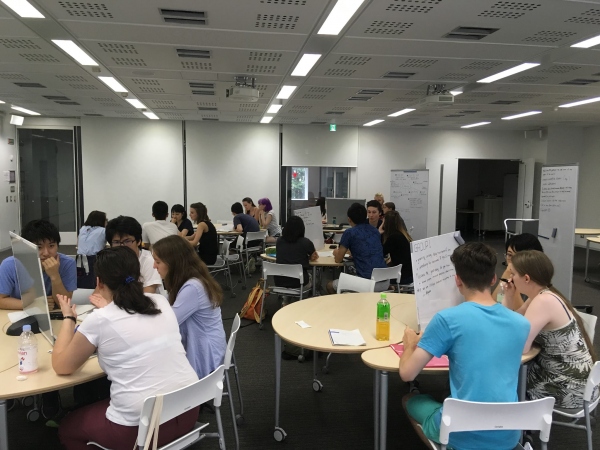
Korea
- Soul University Summer Program
-
 To experience the traditional musical instruments of Korea
Thoughts on SNU Summer Program
To experience the traditional musical instruments of Korea
Thoughts on SNU Summer Program
I have been learning Korean since I was a high school student, attracted by various K-pop songs and Korean TV dramas. Most of the Korean teachers suggest I go to Korea and try to communicate with the locals. I was always finding some chances to visit this country in person, but I failed due to several reasons. Therefore, as soon as the program was announced in class, I tried to register regardless of any difficulties that I came across.
Because everyone in the group was punctual and reliable, all activities and classes were done very smoothly. We finished a whole textbook that was full of grammars and words in three weeks, together with UCC tasks, role plays, and a presentation. The class was 4-hour long, but there was sufficient time for us to have a rest and the teachers also kindly prepared snacks for us. The process was arduous but fun, and every student demonstrated his or her talent during the classes, and especially, at the closing ceremony, where we enjoyed a whole session of our fruitful accomplishments achieved with the help of teachers, TAs and other students in class.
Apart from the academic part, we also enjoyed the great landscape and culture of Korea. We first tried to cook Korean food and put on Korean traditional clothes, which were quite exotic to me, and maybe to other participants as well. Also, we visited the DMZ tunnel where we got to know much information about North Korea and the history of the Korean Peninsular.
Korean people in general seem affable and enthusiastic for me, which made me more reluctant to leave this lovely place. This program not only taught me material stuff like the Korean language, Korean culture and history, but also broadened my horizons so that I feel easier to accept another culture and cooperate better with people from different cultural back grounds.
Yang Yi (PEAK 3rd)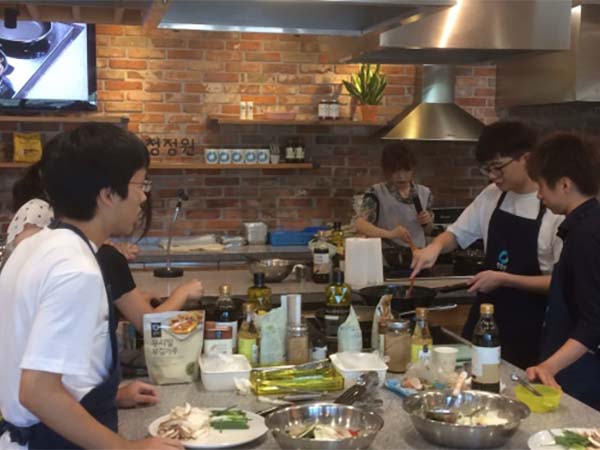 Cooking Korean food(Bulgogi & Korean pancake)
Cooking Korean food(Bulgogi & Korean pancake)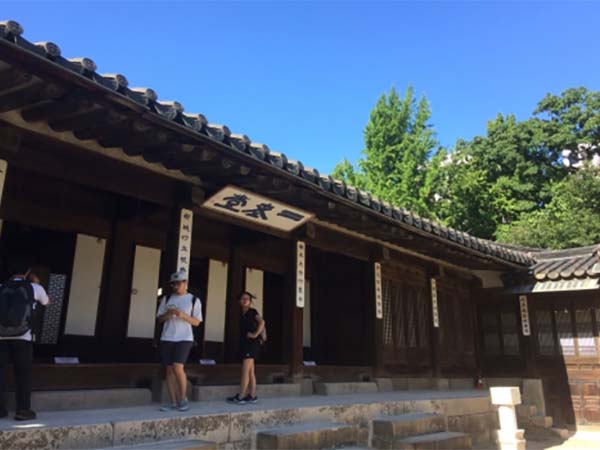 To experience Korean tea ceremony
To experience Korean tea ceremony
Kashiwa
- The University of Tokyo Summer Internship Program in Kashiwa (UTSIP Kashiwa)
-
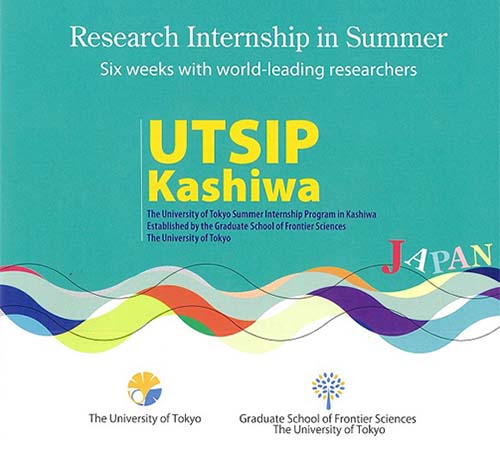 There are 3 things that stood out to me about the program.
There are 3 things that stood out to me about the program.
The first was the kindness of the people in my lab. The teachers and graduate students spent time carefully instructing us, and I was able to make the most of my research experience. The fact that I was able to work through the many obstacles that occurred during our research alongside the teachers and researchers in the lab greatly contributed to my development as a researcher.
The second thing that stood out was the cultural exchange with program members from abroad. This program provided me with opportunities to interact with people from other countries both inside and outside the lab. The international students who participated in UTSIP were all talented and outgoing, and speaking with them all was very stimulating. Also, speaking in English about my research interests with the international students in my lab was a great and important experience.
The third thing that stuck out to me was the depth of the research content in the program. In the UTSIP Program, you are able to spend a good length of time exploring the subject of your research in the lab. You are also able to use the resources of your lab and other campus facilities to investigate aspects of your research that interest you. Throught the USTIP Program, I was able to completely satisfy my curiosity. On the other hand, because the content of the research was difficult there were many cases in which I was made aware of my own inadequacies. In this way the USTIP Program helped me realize what I will need to work on in the future.
There aren't many programs which allow second year undergraduate students to engage in such complicated research. I cannot thank the teachers, faculty and TA enough for making this program a reality. Thank you so much.
(Sato Tsuyoshi, 2nd year student, Natural Sciences 1)